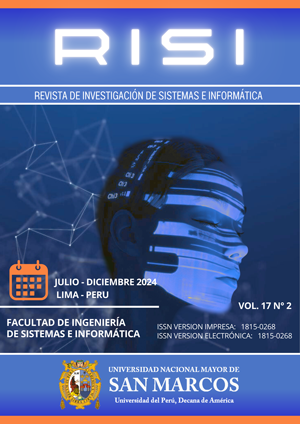Academic resource recommendation system for university students
DOI:
https://doi.org/10.15381/risi.v17i2.28406Keywords:
Software lifecycle, Recommendation system, Kaggle, e-learning, machine learningAbstract
The pandemic generated a greater importance to online education. Hundreds of students sign up for online courses offered by universities or other institutions. However, due to the large number of options this poses a problem when choosing the course, in addition in the country there is an imbalance between supply and demand for labor. Companies are requesting professionals with more technological skills; therefore, the objective of the system is to improve the process of academic orientation for university students: Recommend courses based on their searches. The system was developed according to the methodology of the software development cycle consisting of 4 stages: Analysis, Design, Development and Testing, with an estimated duration of 2 months, where the datasets used were 3 of the Kaggle platform based on e-learning platforms as Udemy. To validate, a survey was carried out on 20 students at the last cycle of the Faculty of Systems Engineering of the UNMSM because these students are more qualified in the career and have more definite doubts about the competences they wish to acquire. The results showed that at least 75 per cent of respondents found the system useful; helps them in their academic orientation and saves them considerable search time by meeting the research objective at a considerable level in most respondents.
Downloads
Downloads
Published
Issue
Section
License
Copyright (c) 2024 Giancarlo Ricardo Silva Gomez, Roberto Sifuentes Marcelo

This work is licensed under a Creative Commons Attribution 4.0 International License.
AUTHORS RETAIN THEIR RIGHTS:
a. Authors retain their trade mark rights and patent, and also on any process or procedure described in the article.
b. Authors retain their right to share, copy, distribute, perform and publicly communicate their article (eg, to place their article in an institutional repository or publish it in a book), with an acknowledgment of its initial publication in the Revista de investigación de Sistemas e Informática.
c. Authors retain theirs right to make a subsequent publication of their work, to use the article or any part thereof (eg a compilation of his papers, lecture notes, thesis, or a book), always indicating its initial publication in the Revista de investigación de Sistemas e Informática (the originator of the work, journal, volume, number and date).


